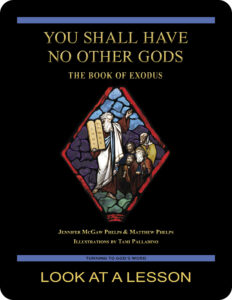ransom
 Jesus’ life as ransom is a difficult idea for many people to grasp. It relies on understanding the concept of redemption, and on accepting that
Jesus’ life as ransom is a difficult idea for many people to grasp. It relies on understanding the concept of redemption, and on accepting that
humanity was in need of such redemption. In the Gospel According to Matthew 20:26–28 (NABRE), Jesus teaches his disciples what the path to greatness looks like and emphasizes that he came to give his life as a ransom.
The idea of ransom in connection with religious sacrifice dates to the time of the Exodus. The New Testament appropriates the same idea in order to explain Jesus’ Passion, death, and Resurrection.
The Greek for ransom is λύτρ-ον (lutron). Lutron is related to the Greek word for redemption, λύτρωσις (lutrosis), which means “ransoming” or “buying back with a ransom.” Ransom used in this context specifically means the price for release of a captive.
In what ways do you think that humanity is or has been held captive? How do you think that the offering of Jesus’ life as ransom made it possible for humanity to be redeemed and to attain salvation?
related topics: First Letter of John; Letter to the Philippians; passion
you also may like our study of the book of Exodus
 You Shall Have No Other Gods: The Book of Exodus, a 28-lesson Catholic Bible study with an imprimatur, provides an in-depth look at how significant events in biblical history that occurred thousands of years ago to descendants of Jacob remain relevant and even critical for present-day Christians to understand. The deliverance of the Hebrews from slavery in Egypt and the giving of Ten Commandments are examined along with the development of Moses’ relationship to God. Click on the book’s cover to view a sample lesson.
You Shall Have No Other Gods: The Book of Exodus, a 28-lesson Catholic Bible study with an imprimatur, provides an in-depth look at how significant events in biblical history that occurred thousands of years ago to descendants of Jacob remain relevant and even critical for present-day Christians to understand. The deliverance of the Hebrews from slavery in Egypt and the giving of Ten Commandments are examined along with the development of Moses’ relationship to God. Click on the book’s cover to view a sample lesson.
 Click on the picture of the statue of Moses with horns (above) to learn more about Lost in Translation. A new entry is archived each Monday. Contact us to receive Lost in Translation by email every week. You may use any of the contact links on our website to ask Matthew a question.
Click on the picture of the statue of Moses with horns (above) to learn more about Lost in Translation. A new entry is archived each Monday. Contact us to receive Lost in Translation by email every week. You may use any of the contact links on our website to ask Matthew a question.
